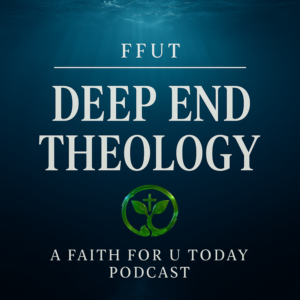In the Parable of the Talents, Jesus taught his disciples about the future events that were about to unfold. In the lesson, Jesus includes a parable that questions the concept of stewardship. As followers of Christ, how are we to look at the gifts and talents God gives to us? Are we to believe these are extra credit on top of the finished work of Christ? Are there benefits or punishments involved with obedience or disobedience to gifts and talents? What does the Bible teach about these things? The parable explains to us the responsibilities of those entrusted with gifts and talents. In the following paragraphs, we will decipher the talents and what Jesus taught in the passage. Afterwards, we will look at how this relates to us today and if there are repercussions to not using our gifts and talents. In conclusion, I will provide my perspective on the lesson.

The Issue Of Unused Talents:
Before we look at the Scripture passage on the parable of the talents, I want to address the concern here. Why the big deal, you may ask? So what if someone doesn’t use their gifts? Are they not saved if they placed their faith in Christ? Why not just do your best and live our lives peacefully and harmoniously with everyone? Sounds meaningful, and the premise is not incorrect. However, someone who asks these questions has missed something—God’s command. You see, if God says something, if God says anything, no matter what it may be, then it is law. God is just and righteous. There is no error or fault with God. God cannot do wrong. Because God is so perfect, everything he does and says is always perfect. All this to say, if and when God gives someone a gift (or talent), then that individual must use that talent to its fullest.
Aside from obedience to the command of God, the talents also relate to the incident when Jesus cursed a fig tree for not producing fruit to eat:
Mark 11:12–14, 20–21 (ESV)
Verse 12–14:
“On the following day, when they came from Bethany, he was hungry. And seeing in the distance a fig tree in leaf, he went to see if he could find anything on it. When he came to it, he found nothing but leaves, for it was not the season for figs. And he said to it, ‘May no one ever eat fruit from you again.’ And his disciples heard it.”
Verse 20–21:
“As they passed by in the morning, they saw the fig tree withered away to its roots. And Peter remembered and said to him, ‘Rabbi, look! The fig tree that you cursed has withered.’”
Matthew 21:18–19 (ESV)
“In the morning, as he was returning to the city, he became hungry. And seeing a fig tree by the wayside, he went to it and found nothing on it but only leaves. And he said to it, ‘May no fruit ever come from you again!’ And the fig tree withered at once.”

The result of a fruitless tree was cast out like the unfaithful servant. Jesus points out to his disciples how to identify those who follow him and those not part of his fold. Fruit production is a sign of healthy spiritual growth. No fruit is a warning.
God gives talents to all human beings in His benevolent loving kindness (James 1:17; Matthew 5:45). Each individual has an innate responsibility to fulfill the use of that gift. Otherwise, it is breaking the law, which is a sin. In other words, not using the gift God gave is sin before the eyes of God, because it is a sin of omission (Jam 4:17).
You may ask why it matters to God if we neglect our gifts and talents. That’s like saying a parent punishes their child for not playing with the toys they received. A good God would not do this, so we must look deeper at the reason or meaning of the gift. For instance, if I were to give you a sweater, there is a reason why I gave you that particular gift. It was to see you wear it. But more than just for my visual enjoyment, it keeps you warm on cold days. The gift is also an expensive name brand. All these reasons were preplanned and thought out before purchasing the gift.
In the same way, when God gives us a gift of skill, there is a good reason behind the gift. The receiver must discover that reason and utilize the gift to its fullest. Let us now examine the Scripture verses and see what the Bible teaches.
The Three Servants:
In Matthew 25:14-30, Jesus teaches his disciples the parable of the talents. The story describes a Master of the property leaving his talents with his three servants. In the old Jewish tradition, a talent was a form of measurement or monetary value. People used talents to measure valuable metals, and a certain amount of measurement was referred to as a talent. In Greek, the word resembles round or circular, which also references money. Although the word is used to reference monetary means, it symbolically means the gifts and abilities God gives to people.
 In the parable, a master had three servants, giving each servant different amounts of talents. To the first he gave five; The second he gave two; And the last he gave one. We don’t know why there were discrepancies in the amounts, but he possibly gave more to those he knew were more faithful. It is also possible he gave it capriciously. The Bible does not disclose this information. However, each received a different amount and was responsible for using the talent. When the master returned after his long trip, the first servant told him he had doubled the amount and gave the master 10 talents. The second one doubled his amount as well and received an equivalent reward. Both faithful servants received equal rewards, but the amount they received from the beginning differed. God does not look upon the amount of talents given, but how we use them. Jesus rewarded both servants, saying, “I will set you over much.”
In the parable, a master had three servants, giving each servant different amounts of talents. To the first he gave five; The second he gave two; And the last he gave one. We don’t know why there were discrepancies in the amounts, but he possibly gave more to those he knew were more faithful. It is also possible he gave it capriciously. The Bible does not disclose this information. However, each received a different amount and was responsible for using the talent. When the master returned after his long trip, the first servant told him he had doubled the amount and gave the master 10 talents. The second one doubled his amount as well and received an equivalent reward. Both faithful servants received equal rewards, but the amount they received from the beginning differed. God does not look upon the amount of talents given, but how we use them. Jesus rewarded both servants, saying, “I will set you over much.”
The parable of talents comes right in the middle of two other parables related to the events of the end times. Previously, Jesus taught the parable of the ten virgins, relating to the neglect of not being ready for the master’s return. The following parable is about the separation of the sheep and the goats. In the end, Jesus will separate those who belong to Him and those who don’t. The parable of talents is sandwiched in the middle and concludes with the same imagery of the Lake of Fire (Matthew 25:30; Matthew 24:45–51 (faithful servant), Matthew 25:1–13 (ten virgins), and Matthew 25:31–46 (sheep and goats).
 Is Jesus teaching that not doing His work will result in being sent to Hell? Of course not. If Jesus paid for our sins, then that interpretation is incorrect. Jesus is not teaching that work is required for salvation. But instead, Jesus is teaching that there are talents and gifts given to all in general, meaning everyone has a gift or talent from God. The receiver is responsible for learning and utilizing their gifts to their potential. Failure to even use it to turn a profit is neglect and disobedience. The giver of the gift is insulted by the response of the receiver. He did not show gratitude, nor did he cherish it. He probably saw what the other servants received and found his heart filled with jealousy and resentment. It would be the most natural response from a sinful person. It reflects Genesis when Cain murdered his brother Abel out of jealousy over God’s response to their offerings.
Is Jesus teaching that not doing His work will result in being sent to Hell? Of course not. If Jesus paid for our sins, then that interpretation is incorrect. Jesus is not teaching that work is required for salvation. But instead, Jesus is teaching that there are talents and gifts given to all in general, meaning everyone has a gift or talent from God. The receiver is responsible for learning and utilizing their gifts to their potential. Failure to even use it to turn a profit is neglect and disobedience. The giver of the gift is insulted by the response of the receiver. He did not show gratitude, nor did he cherish it. He probably saw what the other servants received and found his heart filled with jealousy and resentment. It would be the most natural response from a sinful person. It reflects Genesis when Cain murdered his brother Abel out of jealousy over God’s response to their offerings.
Although the servant didn’t go as far as to murder the other servants, he probably resented them and decided to do nothing for the master. The story tells us that upon receiving the talents, the first two servants immediately went and traded them to double the amount. The third servant buried it, planning to return it to the master. Have you ever given a gift to someone out of the goodness of your heart and love for them, only to receive in return a rejection of that gift? Yeah, it doesn’t feel good. When someone gives a gift, the giver hopes the receiver will like it and be grateful. What this third servant did was insulting. He is returning to the master the same very talent. It would be a different story if the servant went off and tried to double it like the first two did, or drew interest on it. At least that would show effort and attempt in using the talent. This unfaithful servant handed back what was given to him, saying, “I don’t want it. I don’t need it. You take it back.”

The servant sounds very similar to Esau’s attitude in Genesis, as he rejected and sold his God-given birthright to Jacob for a bowl of soup. It is equivalent to a slap in the face. Jesus explains that his talent was taken and given to the first servant, and the last servant is sent off to Hell, which seems extreme to someone who reads this from a business point of view. However, this passage is not about business practices and the use of skills. There is a deeper meaning behind the talents and the servants, and why the master was so harsh in his punishment for the last servant’s failure. The punishment does not fit the crime.
God’s Purpose For Our Gifts:
So, how can we read the passage if reading it from a businessman’s view is incorrect? Remember, the passage is sandwiched between two other parables, all with the same message in mind: the last day’s events. Jesus teaches that the master is Himself, and the servants are his followers. In his first coming, the Master gives gifts to his servants. It parallels Jesus’ first coming and giving the gift of grace through His sacrifice on the cross. Jesus starts a revolution with these twelve men who are His servants. He has entrusted them with a treasure beyond value, the message of the Gospel. They received this message to carry it to the whole world. It is the Great Commission (Matt 28:16-20). If we read the parable in this way, then we can see why the Master was furious and upset with he last servant. The parable was not about gaining monetary value by using talents, but gaining the lost and broken for the Wedding Feast of the Bridegroom (Rev 19:7-9). God entrusts gifts to us to use to gain lost souls. If we see the actual value of a talent, our purpose and reason for using our skills and gifts change drastically. The reason is not for gaining temporary goods, but saving lives.
 We may be concerned with money and the skills we possess, but God is concerned with saving as many people as possible. He gave each individual a gift and talent to use to spread the message of the Gospel of Christ. We may not see it now, but each person plays a part in the bigger picture of the path of salvation for each individual seeking to know the truth. If you are a believer, and remember when and how you came to know Christ, you will discover that many people played a small part in bringing you to that point of understanding. God uses whatever means he will to get someone to a point of conflict. That conflict is the inward self-realization of reality and the meaning of life. Everyone has a moment in their existence where they come face to face with life and death, as well as the question of the afterlife. In his book Dynamics of Faith, Paul Tillich touches on this confrontation with the Ultimate. “Faith is the state of being ultimately concerned: the dynamics of faith are the dynamics of man’s ultimate concern.” Dynamics of Faith, p. 1 (Harper & Row edition)
We may be concerned with money and the skills we possess, but God is concerned with saving as many people as possible. He gave each individual a gift and talent to use to spread the message of the Gospel of Christ. We may not see it now, but each person plays a part in the bigger picture of the path of salvation for each individual seeking to know the truth. If you are a believer, and remember when and how you came to know Christ, you will discover that many people played a small part in bringing you to that point of understanding. God uses whatever means he will to get someone to a point of conflict. That conflict is the inward self-realization of reality and the meaning of life. Everyone has a moment in their existence where they come face to face with life and death, as well as the question of the afterlife. In his book Dynamics of Faith, Paul Tillich touches on this confrontation with the Ultimate. “Faith is the state of being ultimately concerned: the dynamics of faith are the dynamics of man’s ultimate concern.” Dynamics of Faith, p. 1 (Harper & Row edition)
More and more are ignoring or neglecting these complex questions because they cause them to fear and tremble inside. The typical response is, ‘I don’t want to think about it.’ They use the theory of evolution or modern psychology to explain life’s meaning. Unfortunately, they are still searching for what happens after you die. No one knows, except He who returned from the dead to tell us.
 Today, we see many professing to be Christian. Some visit the Church, others just like the religion, and attend for a while. Only God knows the heart of a person. God knows who belongs to him. Only God gives gifts to all people, believers and non-believers alike. To say that a Christian businessman or mechanic is better than a non-Christian mechanic or businessman is foolish. Being Christian doesn’t make someone better at a talent or gift. Training and utilizing that gift make someone good, not their belief in God. Adam was given authority and dominion over the entire Earth. The Earth is Adam’s kingdom, and God gave Adam a great responsibility. That same responsibility falls on all of us today as his descendants. Our use of our gifts and talents is essential in tending the world and helpful for the works of the Gospel.
Today, we see many professing to be Christian. Some visit the Church, others just like the religion, and attend for a while. Only God knows the heart of a person. God knows who belongs to him. Only God gives gifts to all people, believers and non-believers alike. To say that a Christian businessman or mechanic is better than a non-Christian mechanic or businessman is foolish. Being Christian doesn’t make someone better at a talent or gift. Training and utilizing that gift make someone good, not their belief in God. Adam was given authority and dominion over the entire Earth. The Earth is Adam’s kingdom, and God gave Adam a great responsibility. That same responsibility falls on all of us today as his descendants. Our use of our gifts and talents is essential in tending the world and helpful for the works of the Gospel.
You cannot directly serve a God you do not see or hear audibly. But God made a way so that we can find joy and pleasure in serving Him, even though we cannot see him. We serve Him by serving our neighbors (Matt 7:12). When the rich young ruler asked Jesus about the greatest commandment, Jesus responded with, “Love the Lord your God, and with all your heart, soul, mind, and strength. And love your neighbors as yourself” (Matt 22:37-38). The ruler asked for the greatest commandment to follow, and Jesus responded with two. Or did He? No, Jesus gave one commandment. Both are intertwined and knit so closely that they are as one (Mark 12:28-34).

To love the Lord your God is displayed by loving your neighbor. You show God how much you love Him by loving those unlovable, which you can see (Matt 25:41-46). Show kindness and gentleness, rather than anger and frustration. Imagine if God whispered in your ear to be kind and forgive that one person in your life who drives you bonkers. If God told you to do something, are you obligated to do it?
The hope is to move from being taught to love others to loving others reactively. We must reach a point where we can love others despite their weaknesses and failures. It is difficult to love some people because we see flaws in them. We can love the unlovable with humility and servanthood because God has shown us love first (1 John 4:19). If God loved us before we repented and asked for forgiveness, we must love those around us, especially the difficult ones.
Conclusion:
God loves the world (John 3:16). He loves all his creations (Psalms 104; 145:9). Everyone plays a part in His story, and everyone has their own stories they are living out. It is a world full of many stories harmoniously working together to fulfill the grander tale of God’s Drama. He is working out His plan of redemption, and utilizing all means to accomplish His will (Rom 8:28; Eph 1:11). He gives gifts and talents to all people to use for His glory. All people are responsible for using the gifts given to them because they all play a part in this life for the betterment of humankind and the development of the world. The glory of God’s redemptive plan is the guiding plot line that all stories play in. All work and talents provide help or service in some way to society.

It is humankind’s responsibility to use their skills to improve the well-being of others. The act of service pleases God and is at the heart of God’s will for each person. We are all called by God to serve Him by using the gifts He has entrusted us with for His glory. It is our responsibility to discover what that gift is. The mystery of knowing the meaning of life is revealed in this one understanding, using our talents to serve God by serving others to increase the Kingdom of God. Our life’s journey and path is to discover this mystery, knowing Christ in the act of service. “It is the glory of God to conceal things, but the glory of kings is to search things out” (Prov. 25:2).
May God be glorified in all we do. Amen.


 Verse 12–14:
Verse 12–14:



